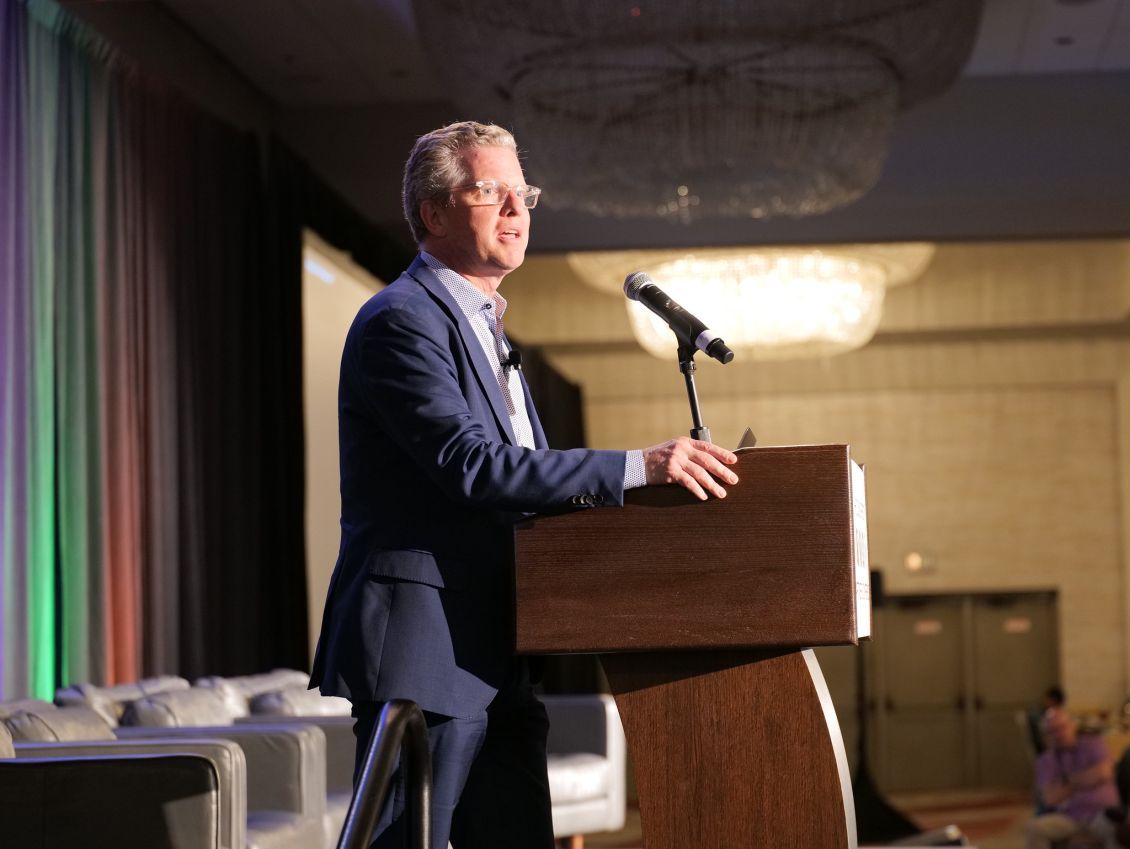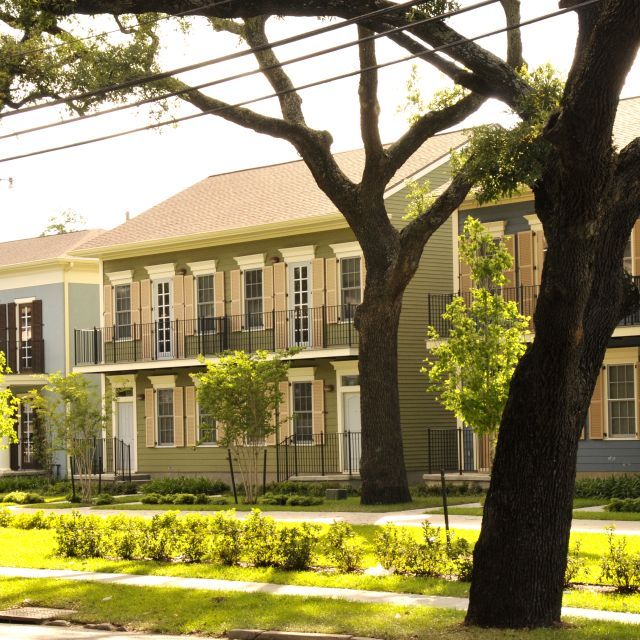As more households struggle to find housing they can afford, homelessness is increasing across the country. The solution is to address the issue head on providing housing and supportive services – not by ticketing or arresting people who don’t have a safe place to sleep.
The Supreme Court this week hears oral arguments for the landmark case on homelessness, Grants Pass v. Johnson. Enterprise Community Partners – and Enterprise CEO and President Shaun Donovan personally – joined over 1,000 individuals and organizations in submitting amicus curiae briefs in support of the rights of people experiencing homelessness.
In his closing remarks at the Housing First Partners Conference in Atlanta, which drew nearly 1,300 leaders, practitioners, and policy makers from 49 states and seven countries, Donovan speaks on the topic, discussing the conditions that resulted in record levels of homelessness across the country and the need to invest in and elevate proven solutions like Housing First.
Here are excerpts of Donovan’s remarks in Atlanta:
We, as a nation, have created the conditions for homelessness to flourish. There is inadequate funding at every level of government to support people who are experiencing homelessness and to provide the permanent supportive housing that we need. There's inadequate support for all the other pieces we need to solve this challenge.
We’re up against stark narratives that try to lay the blame at the feet of those suffering. But let’s be clear, homelessness is not a result of their own failings, but by the end stage failure of our housing system.
When we see one of our neighbors sleeping on the streets or in a shelter, there are hundreds if not thousands who we don't see – who are sleeping on couches, or doubled up, or struggling, not putting food on the table, not being able to buy clothing for their kids, because they're paying 50 or 60% of their income towards rent. We must recognize as Gregg Colburn reminds us that homelessness is a housing problem at its core.
The Challenge
Homelessness is rising in 41 states across the country, and last year, we saw the highest number of people experiencing homelessness on record. What's particularly striking, as I traveled the country over my seven months at Enterprise, is not just the depth of the crisis, but its reach. The problem is not just in New York and on the west coast. The crisis is also in Boise, Idaho and Bozeman, Montana, in rural communities in New Mexico. It is reaching communities that have been affordable before.
It's also compounded by many of the challenges of COVID. We saw rents rise 18% in one year during COVID, more than we've ever seen in the history of keeping those numbers. And to make it worse, insurance costs are rising. Enterprise is also an owner and manager of affordable housing, and our insurance rates tripled last year when we renewed.
For permanent supportive housing in particular, there's a perfect storm of costs rising, of acuity levels rising, while funding for supportive services is falling. The risk isn't just about if we can build more. It’s also – can we preserve what we have? One of the things we're doing at Enterprise with our partners is really focusing on the preservation of supportive housing. We're one of the largest low-income housing tax credit syndicators in the country. One out of every five tax credits we invest goes into permanent supportive housing. It’s very clear to us from our portfolio across the country that we need to focus on preservation as well.
Part of the challenge and what we're seeing on the brink of the Grants Pass case, is that as the number of our neighbors sleeping on the streets and in shelter rises, too many people are losing hope and forgetting that homelessness is a solvable problem. When that happens, they turn away. Even worse, they turn to criminalization, to bulldozing, tactics that are cruel and callous. And guess what? They're completely ineffective in ending homelessness. We know what works, but we have to make sure that everyone knows what works as well.
The Charge
When I look around this room, I see a group of people who have demonstrated again and again that we know what works: Housing First works, permanent supportive housing works.
When we pair concrete solutions with compassionate care, we see long term housing stability – which means fewer cycles in hospitals, through the prison system, and through substance abuse programs.
When we put those solutions together with larger strategies, we can reduce, and even end homelessness. I've seen it with my own eyes when I was HUD Secretary. We put together the Opening Doors plan, and across the eight years of the Obama administration, we reduced chronic homelessness by a third, family homelessness by a third. We cut veteran homelessness in half, and in over a hundred cities and states around the country, we ended veterans' homelessness – not reduced, ended it.
This is a solvable problem. We did it with bipartisan support and funding. But most importantly, we did it because of all of you. We knew there was a movement out there that had built decades of experience to show what works. Even in this moment of record levels of homelessness, there are bright spots around the country. Houston is reducing homelessness by two thirds. Chattanooga, Austin, and Oregon are taking decisive efforts to bring down the skyrocketing rates of people with nowhere to call home.
People are waking up across this country to the fact that if we as a nation don’t do more on housing, we are never going to be able to solve homelessness.
So the question is, what do we do with this moment of rising consciousness about this challenge? How do we build a movement that can not only address the tip of the iceberg of street homelessness, but the broader housing crisis as well?
It’s going to take investment, but also massive coordination and laser-like focus. It’s going to take building a coalition of businesses, faith leaders, advocates, and allies, sometimes unlikely ones to rally support and urge our leaders to act. So far this year, 25 governors in red and blue states have stood up and made housing a central part of their state of the state speeches.
We're seeing coalitions on land use and zoning come together to say we’ve had it with people saying not in my backyard. It's happening right here in Georgia. Florida just passed legislation, Montana just passed sweeping legislation, along with blue states like Minnesota, New York, California and others. There is a growing movement saying we need to allow more housing to be built and make it more affordable. We have to put more resources in. Just like Mayor Dickens here said, it's a priority for Atlanta, and it needs to be a priority for every community in every state.
Housing is the most expensive, basic necessity that any family has. We need to wake up as a country and ask ourselves, how can it be that only one in four families eligible for vouchers actually gets one? If you're a young child, you have a right to public school. We have created near universal access to health care in our country. But one out of four eligible poor families who cannot afford housing gets a housing voucher.
If we believe housing is a human right, we must act like it is and put our resources behind it. That is part of the movement we need to build in this country.
Watch the full remarks here.
Learn more about the Grants Pass v Johnson case and how to get involved here.


